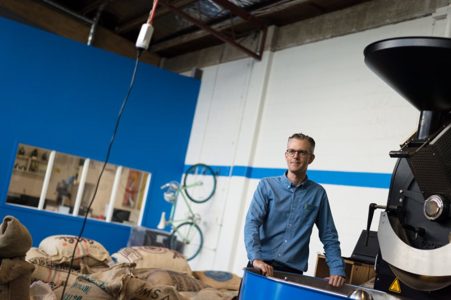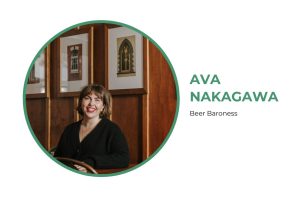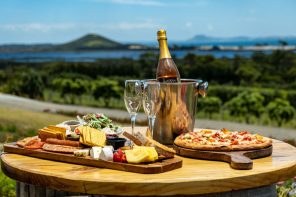In this four-part series, we look at reducing, reusing, and recycling in the foodservice industry. We talk to some of New Zealand's cleanest and greenest and find out what they are doing to keep themselves sustainable.
PART ONE: Sustainability as a concept.
with Kōkako Organic Coffee Roasters, and KIND Café.
“We here at KIND exist to help make Morningside a greener and healthier place to live. Greener in both the physical and ideological sense. Within the heart of an urban, concrete jungle.” The KIND café in Morningside is a social enterprise. This means that 80 percent of its profits return to the neighbourhood in some way. KIND’s approach to sustainability is holistic. It’s not just about taking care of one’s own space, but it’s about encouraging others to do the same. Speaking with Cathie Cottle, manager of KIND café, it becomes apparent that KIND is not just making the foodservice industry cleaner and greener, but investing an abundance of energy and time back into the community. “We run workshops on composting. It’s about encouraging ‘green’ thinking. We are also working with a group called MUMG, or the Morningside Urban Market Garden, which is about using land that isn’t currently in use to grow edible plants as well as raised garden beds. We have refugee women working in the gardens, where Crave and KIND commit to buying them all that they need, and they then get to keep the profits. The goal is that they’ll produce more than we need so that we can supply to a bunch of other cafés,” said Cottle.
While something may be compostable, if it doesn’t make it to the correct facilities, it is likely to end up in landfill. “And that is something that we see as part of our jobs, education. Because if people don’t know how will they learn?”

Cathie Cottle.
Kōkako Organic Coffee Roasters is an organic coffee roastery that supplies numerous hospitality establishments across New Zealand. Talking to Mike Murphy, managing director at Kōkako, it is clear that sustainability is etched into every aspect of the company.
According to their 2018 Sustainability Report, the overall vision for sustainability at Kōkako is one of embodiment and inclusion. “Not everything can be recycled ideally, but we always aim for the next best thing,” explained Murphy. The plastic materials generated at Kōkako, however few, are collected and recycled, while the hemp sacks containing the beans are given to local gardeners.
Kōkako’s efforts to reduce, reuse and recycle go beyond their physical environment. Kōkako’s packaging is selected by hand because of its minimised effect on the environment. From 2016 to 2018, the total weight of non-renewable materials used to produce and package Kōkako’s coffee, drinking chocolate and cold brew from their physical brewery was 376 kg. Inversely, the total weight of renewable materials was 11.8 tonnes.
Kōkako has institutionalised environmental innovation and commitment—and it shows in their product. Kōkako source their green beans from several cooperatives around the world. Within the last five years, Kōkako has invested numerous times in sending members of their team to various coffee regions to better understand and promote the rights of the coffee farmers. Kōkako wants to ensure that coffee consumers understand the journey of their coffee and its provenance, as well as ensuring that coffee farmers and cooperatives understand what happens to their coffee once it leaves their farm.
Transparency is vital for the foodservice industry. Ultimately, everyone would like to be able to move towards sustainability and reducing, reusing and recycling. However, a change of mind is required. Our time with Kōkako made one thing abundantly clear; it’s about responsibility. Businesses need to be able to put their foot down and take responsibility for their waste if we are to move towards a cleaner planet. Conscious decisions need to be made at every corner.

Mike Murphy.
PART TWO: http://restaurantandcafe.co.nz/reduce-reuse-recycle-part-two/
PART THREE: http://restaurantandcafe.co.nz/reduce-reuse-recycle-part-three/
PART FOUR: http://restaurantandcafe.co.nz/reduce-reuse-recycle-part-four/






